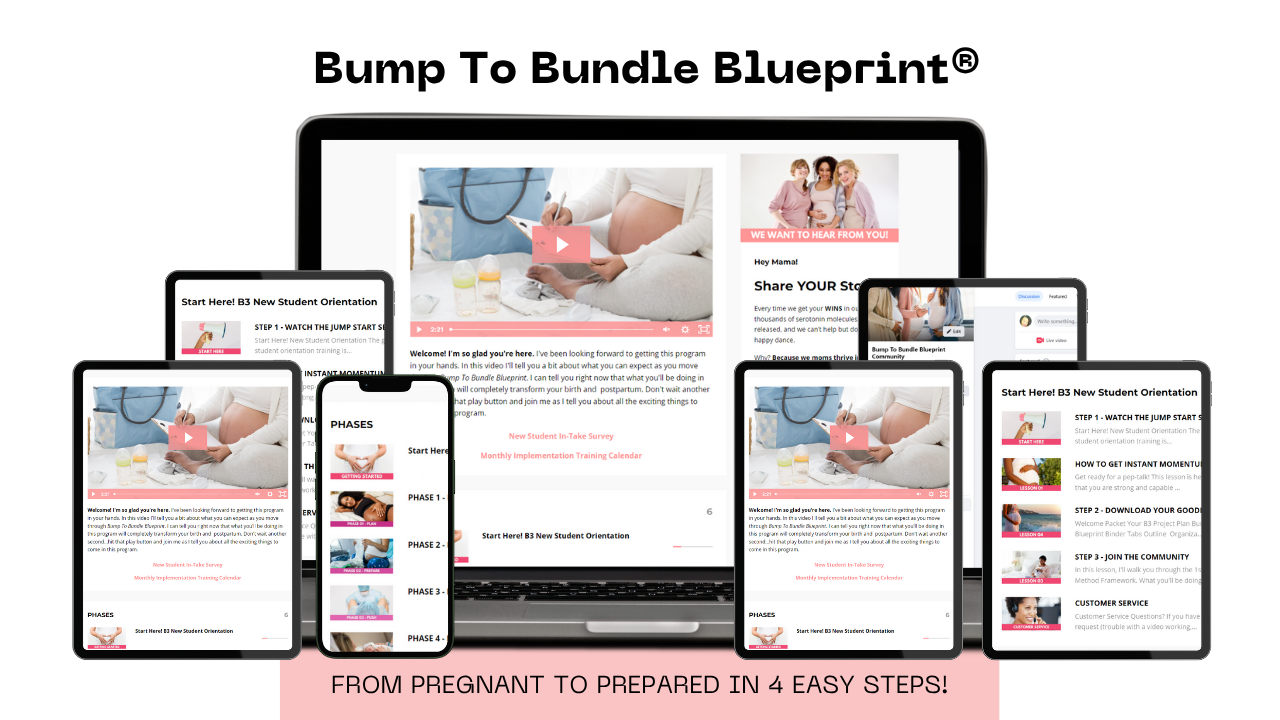3 Costly Mistakes New Moms Make That'll Destroy Your Milk Supply

Breastfeeding is supposed to be natural, right? Then why do so many moms struggle with low milk supply from the start? The truth is, most of the time, it’s not because their body can’t make enough milk—it’s because they were set up for failure without even realizing it.
If you’re a first-time mom and planning to breastfeed, you need to avoid these three costly mistakes that can tank your supply before you even get started. Let’s dive in!
Mistake #1: Waiting Too Long to Start Breastfeeding
Your baby is born with a strong instinct to latch, but that instinct fades quickly. If you wait too long to start breastfeeding, your baby might get too sleepy or frustrated to latch properly, which means your body won’t get the signals it needs to produce milk.
💡 Solution: Aim to nurse your baby within the first hour after birth (a.k.a. ‘The Golden Hour’). This kickstarts milk production and sets you up for long-term breastfeeding success.
Mistake #2: Not Feeding Often Enough in the ...
Here’s WHY Breastfeeding is Hard (And How to Make It Easy!)

Breastfeeding is Natural—So Why Is It So Hard?
If you’re struggling with breastfeeding, let me tell you—you are NOT alone. So many new moms start their journey expecting it to come naturally, only to be met with sore nipples, latching issues, and endless self-doubt.
But here’s what no one tells you: breastfeeding is a learned skill. Just like walking, talking, or riding a bike, it takes practice and the right information to get it right. And unfortunately, many moms are set up to fail before they even begin.
The 3 Biggest Lies About Breastfeeding
Lie #1: Your body will just know what to do. Breastfeeding is instinctual for babies, but it’s still a learning process for both mom and baby. A good latch doesn’t always happen automatically, and positioning takes practice.
Lie #2: If you’re struggling, just push through the pain. Pain is NOT normal. If breastfeeding hurts, there’s likely an issue with the latch, positioning, or even a tongue tie. You don’t have to suffer—the...
14 Weeks Pregnant – What’s Happening This Week?
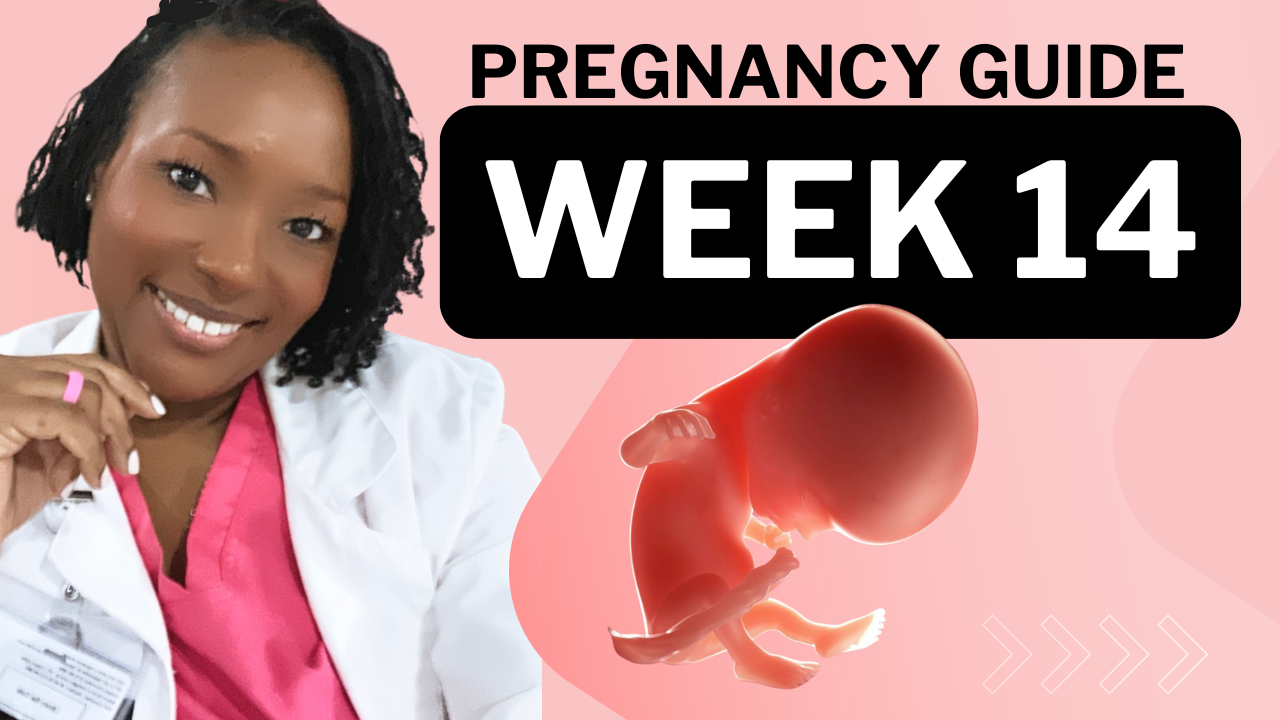
Congratulations, Mama!
You’re officially 14 weeks pregnant and stepping into the second trimester—often called the golden trimester! Your baby is growing fast, your body is adjusting, and you may finally be feeling that pregnancy glow. So, what’s happening inside your belly this week? Let’s dive in!
Your Baby at 14 Weeks: Big Changes Ahead!
Your little one is about the size of a lemon (3.5 to 4 inches long) 🍋 and is growing rapidly. Some amazing developments happening this week:
✅ Kicks, stretches, and ninja moves (you may not feel them yet, but they’re happening!)
✅ Facial expressions are forming! Your baby is practicing frowns, smiles, and even sucking their thumb.
✅ Stronger bones & muscles – Their limbs are getting more proportionate, making them look more like a tiny human!
🤰 Your Body at 14 Weeks: Glow Up & Weird Symptoms
✨ The “pregnancy glow” is real! Increased blood flow and hormones might give you radiant skin (or extra oily skin—keep up with skincare!).
- Mor...
3 Pregnancy Myths You Need to STOP Believing! (Truth Revealed)

Pregnancy Myths DEBUNKED! What You NEED to Know
If you’re pregnant, you’ve probably heard tons of advice—some helpful, some… not so much. 🤦♀️
Today, we’re busting the biggest pregnancy myths with evidence-based facts so you can feel confident and empowered during your journey!
Myth #1: "You're Eating for Two"
Truth: You don’t need double the calories! Here’s what’s actually recommended:
-
1st Trimester: No extra calories needed
-
2nd Trimester: +300 extra calories per day
-
3rd Trimester: +450 extra calories per day
Instead of eating for two, focus on eating nutrient-dense foods to support your baby’s growth.
Myth #2: "No Heavy Lifting"
Truth: Lifting is safe if done correctly!
-
Avoid jerky movements
-
Use proper form
-
Listen to your body
Lifting groceries? No problem. Lifting a couch? Maybe ask for help. 😅
Myth #3: "Avoid Caffeine Completely"
Truth: Moderation is key.
-
Alcohol = NO (due to fetal alcohol syndrome)
-
Caffeine = OK in...
Here's How To Make It Through Your Workday While Pregnant

Hey, mama! First of all, congratulations on your pregnancy! 🎉 The first trimester is such an exciting time, but let’s be real — it’s also tough. Between morning sickness, fatigue, and trying to keep your pregnancy under wraps at work, it can feel like you’re running a marathon every single day. But don’t worry — you’re not alone, and I’ve got your back!
In this blog post, I’ll walk you through actionable tips to help you navigate the first trimester like a pro while balancing work responsibilities. From managing nausea to knowing when and how to talk to your boss, here’s everything you need to know to thrive during this season of life.
What to Expect in the First Trimester
The first trimester is full of changes — some exciting, some… not so much. Here’s what you might experience:
-
Fatigue: Growing a baby takes a ton of energy, so don’t be surprised if you feel like napping 24/7.
-
Morning Sickness: It’s not just for mornings! Nausea can strike any time of day.
- ...
30 Weeks Pregnant? Here’s What No One Tells You (But You Need to Know!)

You’ve made it to 30 weeks—welcome to the final stretch!
By now, your belly is big, your sleep might be trash, and you’re probably realizing just how real this whole “having a baby” thing is getting. But what exactly should you expect this week? And what do most pregnancy apps leave out?
Here’s the truth about what’s going on at 30 weeks pregnant—and how to prepare for what’s ahead.
💛 What’s Happening in Your Body at 30 Weeks Pregnant
At 30 weeks, your uterus is about 4 inches above your belly button, and baby is roughly 3 pounds and 16 inches long—about the size of a cabbage! But the real action? It’s happening behind the scenes.
You may be noticing:
-
Braxton Hicks contractions (practice contractions that are normal but can be annoying!)
-
Pelvic pressure or back pain (thank your growing uterus and loosening ligaments)
-
Shortness of breath, vivid dreams, or even tingly hands (hello, pregnancy carpal tunnel)
Your body is already starting to prep for la...
13 Weeks Pregnant: Week-By Week Pregnancy Guide
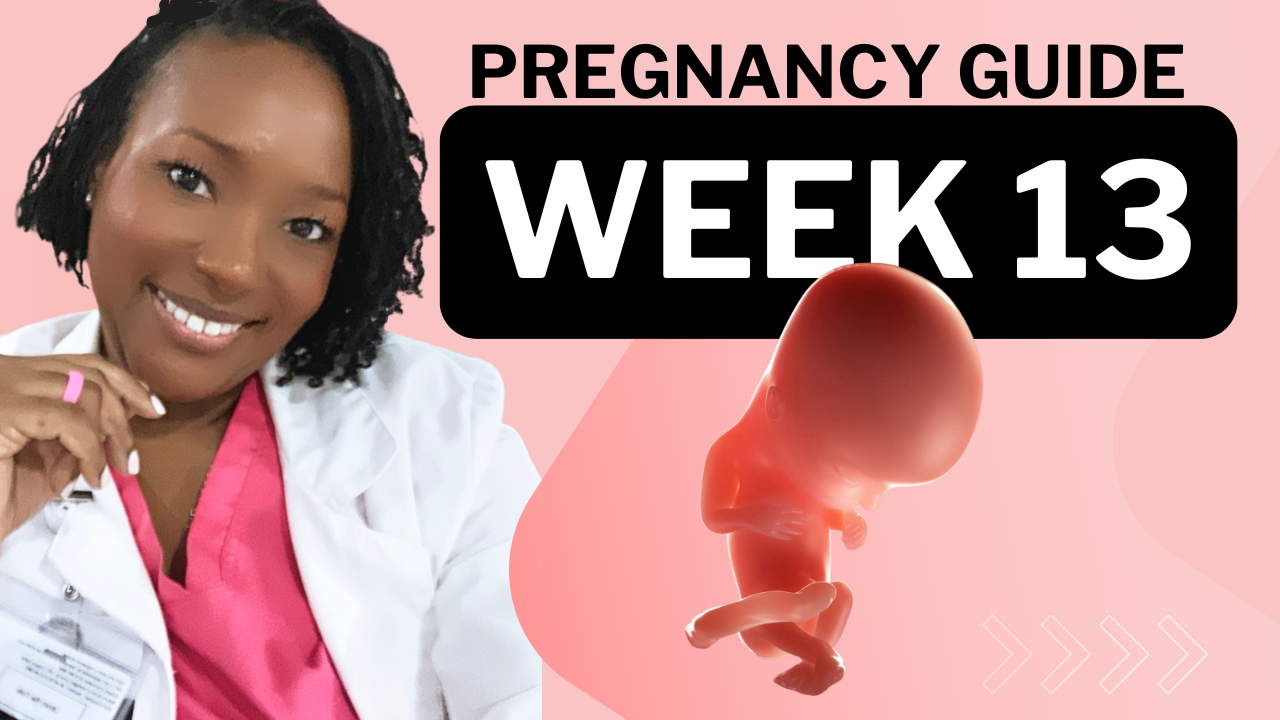
Congratulations, mama-to-be—you’ve officially made it to week 13 of pregnancy! This is a big milestone because you’re wrapping up the first trimester and stepping into the much-anticipated second trimester. This week, your baby is busy growing and moving, and you’re likely starting to feel more like yourself again. Let’s break down everything happening to you and your little one in week 13!
Your Baby’s Development at 13 Weeks
By now, your baby is about the size of a peach—measuring around 3 inches long and weighing about an ounce. Here’s what’s happening with their growth this week:
- Organ Development: Your baby’s organs, like their kidneys and liver, are hard at work. They’re even producing urine!
- Facial Features: Those little facial muscles are getting a workout, allowing your baby to squint, frown, and even suck their thumb.
- Movement: Even though you can’t feel it yet, your baby is wiggling, stretching, and possibly even hiccuping in there!
What’s Happening to You...
12 Weeks Pregnant: Week-By-Week Pregnancy Guide
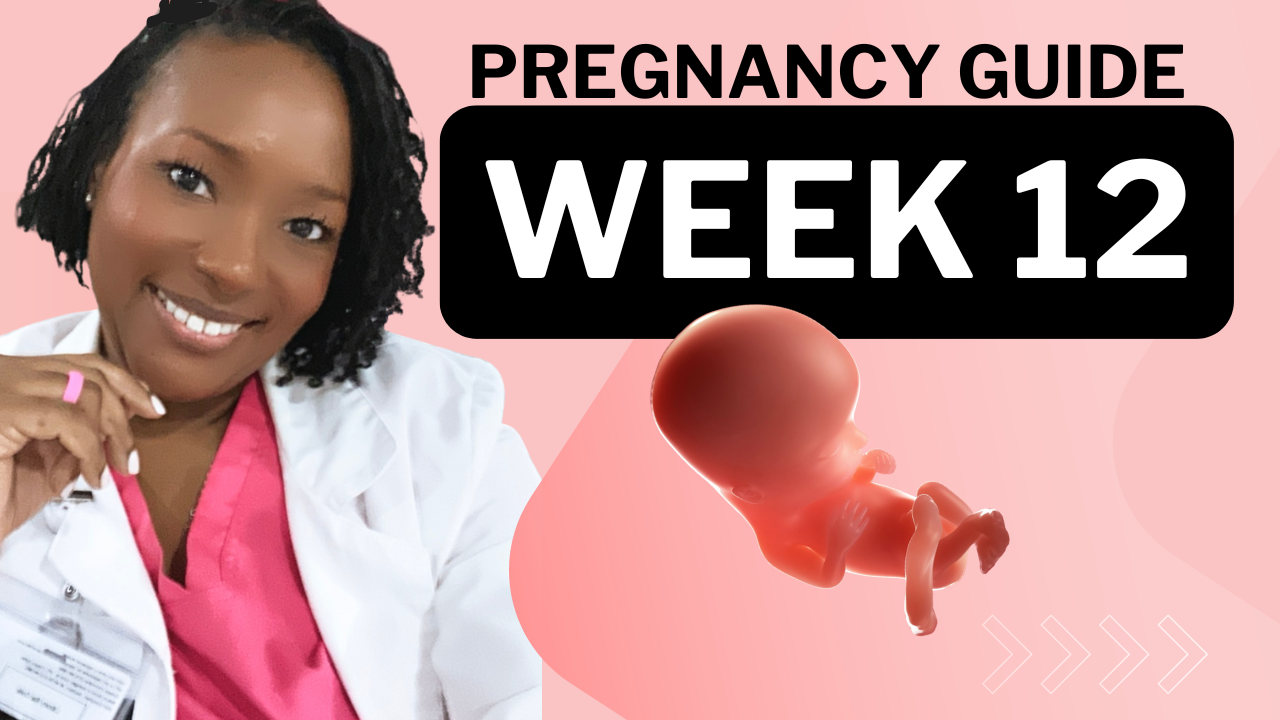
Congratulations, mama—you’ve made it to week 12 of pregnancy! 🌟 This week marks the end of your first trimester and the start of some exciting changes for both you and your baby. From a tiny lime-sized superstar growing inside you to your body gearing up for the second trimester, there’s a lot happening right now.
Let’s break it all down so you can feel informed, empowered, and ready for what’s next!
What’s Happening With Your Baby at 12 Weeks?
At 12 weeks, your baby is about the size of a lime—just over two inches long and weighing nearly half an ounce. Here’s what’s developing:
- Facial Features: Tiny lips, a nose, and even a chin are taking shape.
- Reflexes: Your baby might wiggle if you gently touch your belly.
- Vocal Cords: They’re forming, getting ready for those first cries.
- Organ Development: Intestines are moving into place, setting the stage for healthy digestion later on.
How Is Your Body Changing?
This week, many moms notice some of their early pregnancy sympto...
11 Weeks Pregnant: Week-By-Week Pregnancy Guide

Congratulations on reaching week 11 of your pregnancy! This is an exciting time as your baby is growing rapidly, and you may start noticing changes in how you feel. In this week’s guide, we’ll explore everything you need to know about your baby’s development, what’s happening with your body, and practical tips to help you thrive during this stage of pregnancy.
What’s Happening with Your Baby at 11 Weeks:
- Size: Your baby is about the size of a fig—1.6 inches long and less than an ounce in weight.
- Development: Their facial bones, tooth buds, and hair follicles are forming.
- Milestones: Your baby is practicing movements and producing over 250,000 neurons per minute!
Changes in Your Body at 11 Weeks:
- Energy Boost: Many moms experience increased energy as they approach the second trimester.
- Cravings and Aversions: It’s normal to have strong food preferences or aversions.
- Morning Sickness: If smells bother you, try carrying lemon-scented items to ease queasiness.
Tips...
10 Weeks Pregnant: Week-By-Week Pregnancy Guide
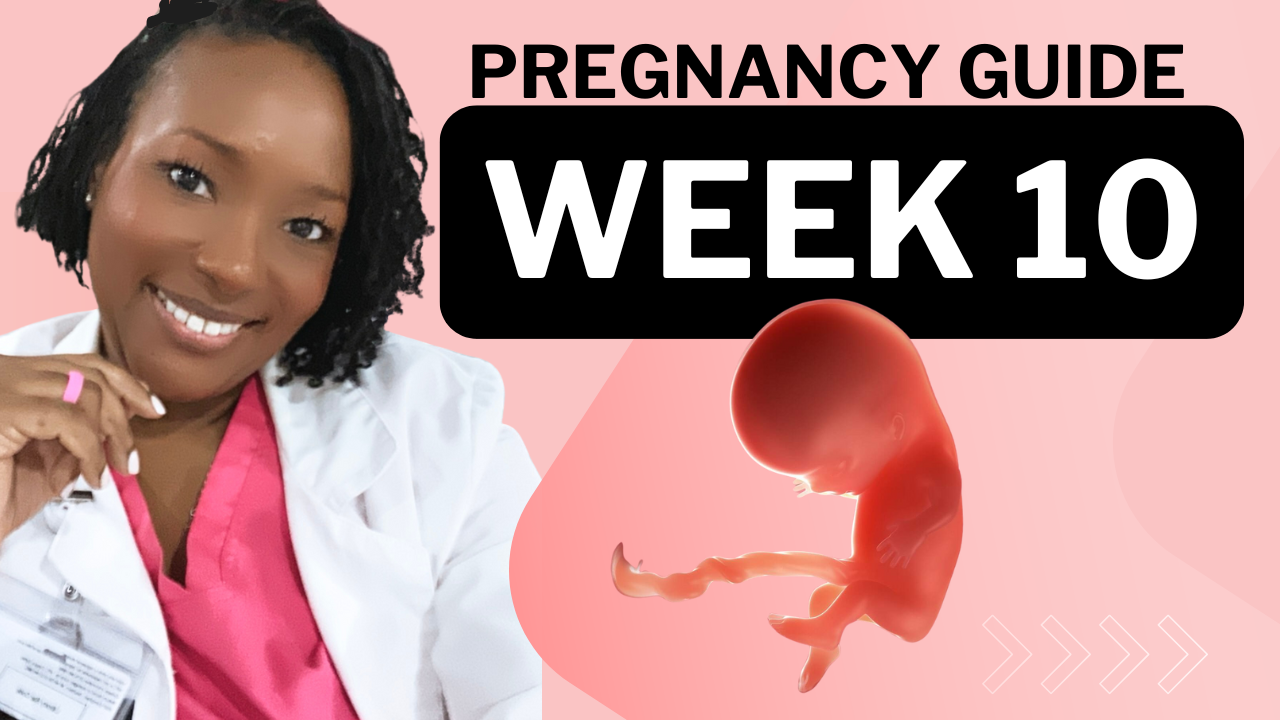
Hooray for hitting the 10-week mark in your pregnancy journey! This week is full of milestones, both for you and your baby. Your little one has officially graduated from an embryo to a fetus and is developing at an astonishing pace. Meanwhile, your body is adapting in amazing (and sometimes surprising) ways. Let’s break down everything happening this week and share practical tips to keep you feeling informed and empowered.
Baby’s Development at 10 Weeks:
- Your baby is now the size of a kumquat (about 1.2 inches long).
- Major organs are formed and beginning to function.
- Bones are hardening, and tiny tooth buds are forming.
- Unique fingerprints are developing—your baby’s first ID card!
Symptoms You Might Be Feeling:
- Heightened sense of smell (hello, supernose!)
- Increased saliva production (pro tip: sip lemon water to stay fresh).
- Fatigue and nausea may still linger but should ease up soon.
What to Expect at Your 10-Week Appointment:
- Possible ultrasound to check ...

